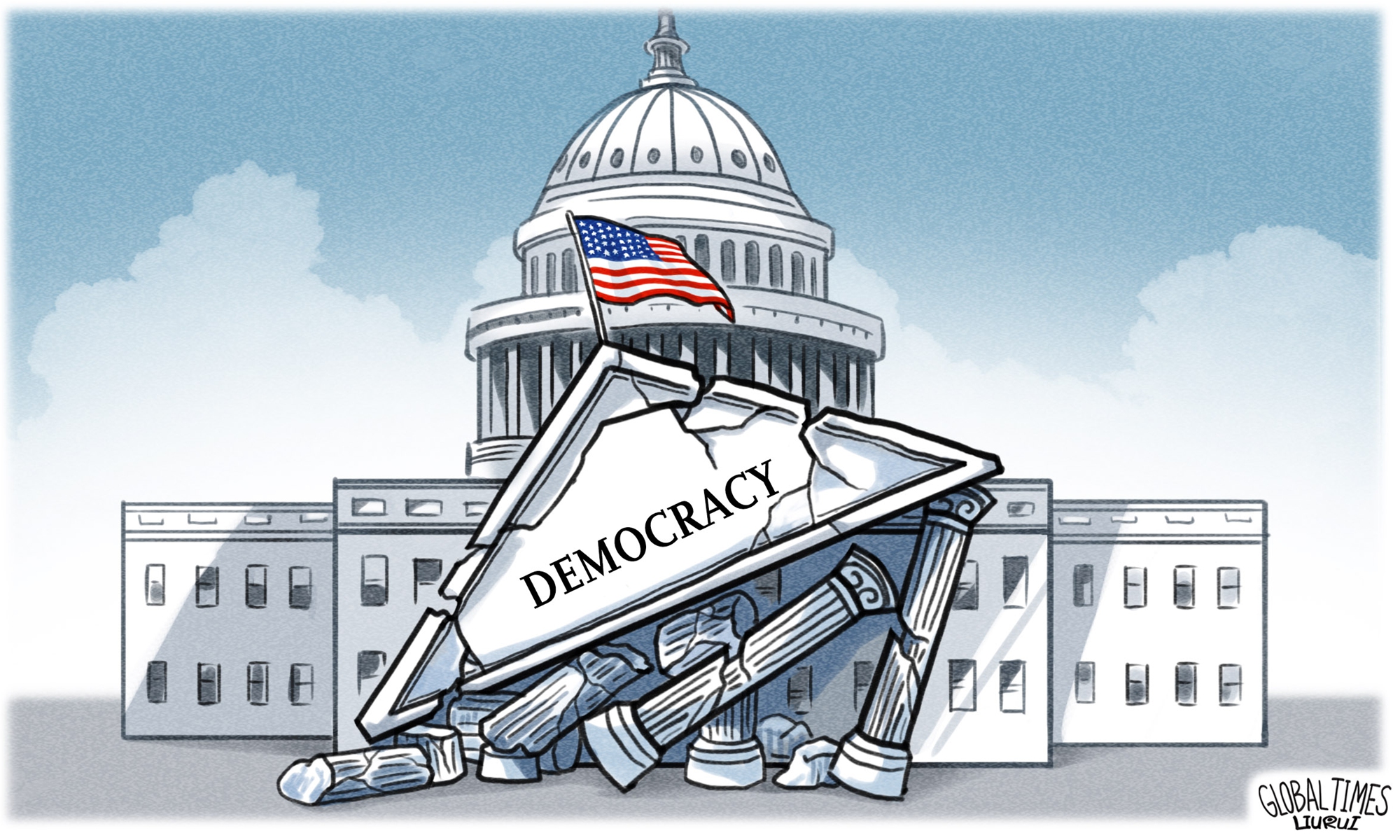
Crumbling US democracy. Illustration: Liu Rui/GT
German newspaper Frankfurter Allgemeine Zeitung recently published an article claiming China has won the competition on social systems. The commentary, written by two German scholars, was explicit - China's system, although "authoritarian," is "very successful."
It explained that as long as a society can reach the following goals - improving social welfare, increasing consumption choices, safeguarding domestic security, promoting education, and providing good healthcare - people will support and trust the system even if their influence in the decision-making process is limited. Such can "in part ensure the legitimacy" of the social system.
Voting in elections is not the only way to have a say in politics. The public opinion of Chinese people is heeded in various ways in the country's policymaking process. The accountability system is proof. A number of Chinese officials have been held accountable for their poor epidemic response, and the numbers are much bigger than those in Western countries.
After comparing the differences in fighting COVID-19 as well as economic performances during the pandemic, the article concluded China is the winner of the competition of systems in 2020. Yet with a neat twist, it stressed that it is not "democracy" that failed, but countries, such as the US, which are led by authoritarian-populist governments.
The op-ed shows rare, relative objectivity among Western scholars and media outlets. Although it has a certain degree of prejudice and misunderstanding about China's system, at least it is facing up to the reality, acknowledging the success of a social system should not be defined by ideology, but whether it can boost development and withstand the crises.
But the authors' introspection stopped from digging problems as they tried to shift blame to the rise of populism in the US.
Granted, democracy has quite a few advantages, yet it is no panacea. Its issues, including low governance efficiency due to excessive emphasis on checks and balances, political infighting thanks to the electoral system, and politicians who focus merely on near-term benefits for themselves without crafting long-term policies to resolve social problems, have been exposed during the pandemic.
In Western countries, the so-called democracy has also brought about waves of populism, the more fundamental reason for which is quite a few Western elites have been long ignoring the needs of the people. Populism consists of anti-elitist sentiment. The grassroots' appeals are often given the cold shoulder in a Western democratic system.
The election system has become a game to rope in more voters. The incoming new US government plans to offer legal status to an estimated 11 million undocumented immigrants. It proves winning the election comes above all else in the US system.
Populism, which helped crown Donald Trump, is being blamed today. Yet it all started from the widening gap between rich and poor. When German scholars use the US populist government as a scapegoat, they overlooked the real question - without addressing the growing inequality in a Western system, will there be a second Trump in the future?
The article raised the support and trust of people when it comes to judgment over the legitimacy of a society. In this regard, data speak louder than words. According to a poll conducted in 2020 by US-based global public relations and marketing consultancy firm Edelman, 95 percent of Chinese trust their government while the US government only saw an approval of 48 percent.
What other excuses will the Western world have to question the legitimacy of the Chinese system? If the West, especially the US, the beacon of democracy, actually senses the crisis and does not wish to lose the competition, it should stop burying its head in the sand.




